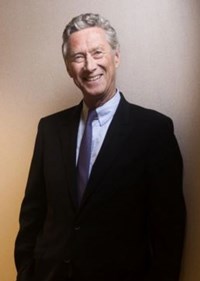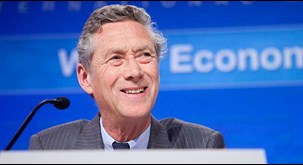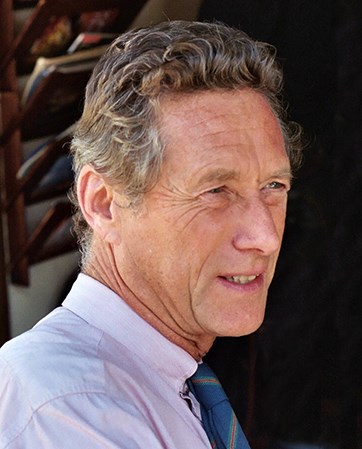Speakers By Topic

Speakers By Type




The World Economy
Economist, author, and academic OLIVIER BLANCHARD has a hands-on understanding of the world economy as the former chief economist of the IMF. Building on his personal experience negotiating with a range of countries and international organizations, Blanchard continues to author thought leadership on the economy today. In this informative conversation, Blanchard breaks down the financial perspectives of key stakeholders in policy decisions as well as the outlook of the economy in general.
In Conversation with Olivier Blanchard
Explore the impact of current geopolitical and geoeconomic issues on individuals and organizations with economist, author, and academic OLIVIER BLANCHARD. Engage in real discussions of Blanchard’s best practices and know-hows built from years spent at the center of the global economy.
Economic Permacrisis: Policy Challenges and Opportunities
Economist, author, and academic OLIVIER BLANCHARD led the IMF through the worst financial crisis in a generation, the near collapse of the Euro, and a global recession. His experiences weathering back-to-back crises in a crucial, visible role provided him a unique insight into how handle road bumps as they arrive simultaneously or in short succession. Join Blanchard for an enlightening conversation on where danger lurks and how to manage it.
Olivier Blanchard is a sought-after voice on the global economy
Renowned international economist and former chief of the International Monetary Fund (IMF) OLIVIER BLANCHARD is heralded as a speaker for skill in balancing macroeconomic policy insights with tangible takeaways. A foremost voice in the world of economics, Blanchard is well-respected for his leadership. Nobel Laureate George Akerlof described Blanchard’s time at the IMF: “He was exactly what the world needed at a crucial moment.”
As a former IMF chief economist, MIT professor, and fellow at the Peterson Institute, Blanchard provides space for discussions on investment developments, global market conditions, and latest trends. The Washington Post called Blanchard’s school of thought “a disciplined way of thinking about the world that is truthful, intuitive and useful.”
Watch Olivier Blanchard speak at MIT Sloan >>
Watch Olivier Blanchard speak at the Peterson Institute >>
A citizen of France, Olivier Blanchard has spent most of his professional life in Cambridge, U.S. After obtaining his Ph.D in economics at the Massachusetts Institute of Technology in 1977, he taught at Harvard University, returning to MIT in 1982. He was chair of the economics department from 1998 to 2003. In 2008, he took a leave of absence to be the Economic Counsellor and Director of the Research Department of the International Monetary Fund. Since October 2015, he is the Fred Bergsten Senior Fellow at the Peterson Institute for International Economics, in Washington. He also remains Robert M. Solow Professor of Economics emeritus at MIT.
He is a macroeconomist, who has worked on a wide set of issues, from the role of monetary policy, to the nature of speculative bubbles, to the nature of the labor market and the determinants of unemployment, to transition in former communist countries, and to forces behind the recent global crisis. In the process, he has worked with numerous countries and international organizations. He is the author of many books and articles, including two textbooks in macroeconomics, one at the graduate level with Stanley Fischer, one at the undergraduate level.
He is a past editor of the Quarterly Journal of Economics, of the NBER Macroeconomics Annual, and founding editor of the AEJ Macroeconomics. He is a fellow and past council member of the Econometric Society, a past president of the American Economic Association, and a member of the American Academy of Sciences.